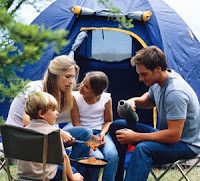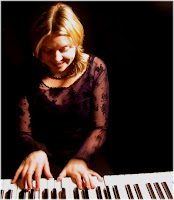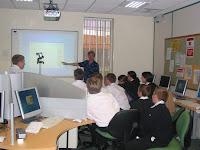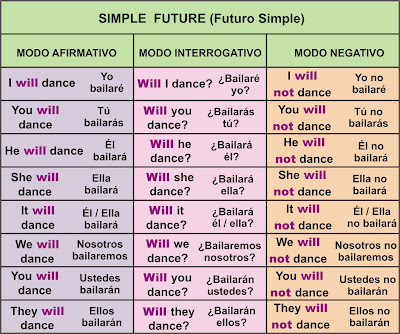Aquí tienes más oraciones donde puedes colocar de forma correcta las preposiciones de tiempo correspondientes:
Archivo por años: 2008
Ejercicios: Adjetivos Posesivos
¿Podrías traducir el siguiente texto al idioma español?… Pero antes debes completar los espacios en blanco con los Adjetivos Posesivos correspondientes:
Ejercicios: Pasado Continuo – Textos
and yesterday he realized that he had enough, but when he (drive) ………………. to the travel agency he remembered that he did not pay the rent, dissapointed he turn round and went back home. He (get) ……………… very ungry when he thought that he could borrow some money and finally he could travel. |
ran into the middle of the road, while he (try) ………………….. to avoid the accident, other car crashed with Peter’s so he couldn’t do anything about it. He decided to call the police but when they (arrive)………………………………….. to the place the second car escaped, fortunately the police could catch him to ask the driver some questions. |
noticed someone behind him. The man (follow) ……………….. him during the whole day, so he decided to go faster. When he (enter)………………………….. into a dark and narrow street, his heart (go) …………………… to explode but when he turned back to see if the man kept following him, he dissapeared. |
Ejercicios: Estructura de la Oración (2)
En esta entrada te proponemos que sigas ejercitando la construcción de oraciones teniendo en cuenta los tiempos verbales aprendidos:
Ejercicios: Pasado Simple II
En los siguientes textos debes colocar los verbos entre paréntesis en Pasado Simple. Luego puedes traducirlos al español:
Ejercicios: Pasado Continuo
¿Podrías colocar los verbos de las siguientes oraciones en Pasado Continuo y luego traducirlas?
Adjetivos Posesivos
En el idioma inglés, los adjetivos posesivos se utilizan para hacer referencia al poseedor de un determinado objeto y son usados con mucha frecuencia, más que en el idioma español. En general preceden a los sustantivos como objetos personales, partes del cuerpo, parentesco, vestimenta. Los adjetivos posesivos y su significado son los siguientes:
ADJETIVO POSESIVO |
|
(de él) |
|
(de ella) |
|
(de animal u objeto) |
|
nuestros / nuestras |
|
(de ustedes) |
|
( de ellos / ellas) |
Observa que la forma ITS se emplea cuando el poseedor es un animal u objeto, aunque muchas veces se hace una excepción cuando existe afecto hacia el animal, en este caso se puede utilizar HIS o HER dependiendo del género, por ejemplo:
(Hace referencia a la casa del perro)
(Hace referencia a la casa del perro si es macho)
That is her house. Aquella es su casa.
(Hace referencia a la casa de la perra)
Los adjetivos posesivos en inglés varían según el poseedor (1ª, 2ª o 3ª persona del singular o plural), pero a diferencia del español, no concuerdan en número con el objeto poseído:
This is my daughter. Esta es mi hija.
They are my brother. Ellos son mis hermanos.
They are my sisters. Ellas son mis hijas.
Aquí vemos algunos ejemplos:
He broke his watch yesterday. Él rompió su reloj ayer.
We will sell our car. Venderemos nuestro auto.
Those are their pictures. Aquellos son sus cuadros.
She is wearing her new dress. Ella está usando su vestido nuevo.
Ejercicios: Presente Continuo – Interrogativo y Negativo
Completa las siguientes oraciones colocando el verbo en Presente Continuo. Luego tradúcelas al español y escribe su forma interrogativa y negativa. Observa el ejemplo:
Alice está mostrando su sombrero.
Is Alice showing her hat?
Alice is not showing her hat.
Futuro Simple – (Simple Future)
El Futuro Simple es un tiempo verbal que se utiliza para describir acciones que se van a desarrollar en el futuro sin necesidad de aclarar en que momento se producirán. Su equivalente en el idioma español es el Futuro Imperfecto. Por ejemplo:
(No se menciona en que tiempo)
He will travel to London. Él viajará a Londres.
(No se especifica cuando)
They will buy a new car. Ellos comprarán un nuevo auto.
(No se sabe en que momento)
Aunque también se puede expresar el tiempo en el que se desarrollará la acción, por ejemplo:
Susan visitará a su madre mañana.
John will travel to New York the next month.
John viajará a Nueva York el próximo mes.
Este tiempo verbal utiliza para su construcción el auxiliar WILL seguido del verbo principal en infinitivo. En el siguiente cuadro veremos la conjugación del Futuro simple en sus formas afirmativa, interrogativa y negativa. (Utilizamos el verbo bailar – TO DANCE – a modo de ejemplo):
También se puede usar en la afirmación la contracción de WILL colocando ‘ll al pronombre y en la negación en lugar de WILL NOT se puede utilizar la forma contraída WON’T:
We will paint the house. We’ll paint the house.
She will not buy a house. She won’t buy a house.
They will not go to the party. They won’t go to the party.
Ejercicios: Futuro Simple
¿Puedes completar las siguientes oraciones colocando el verbo en Futuro Simple y luego traducirlas al español?

















